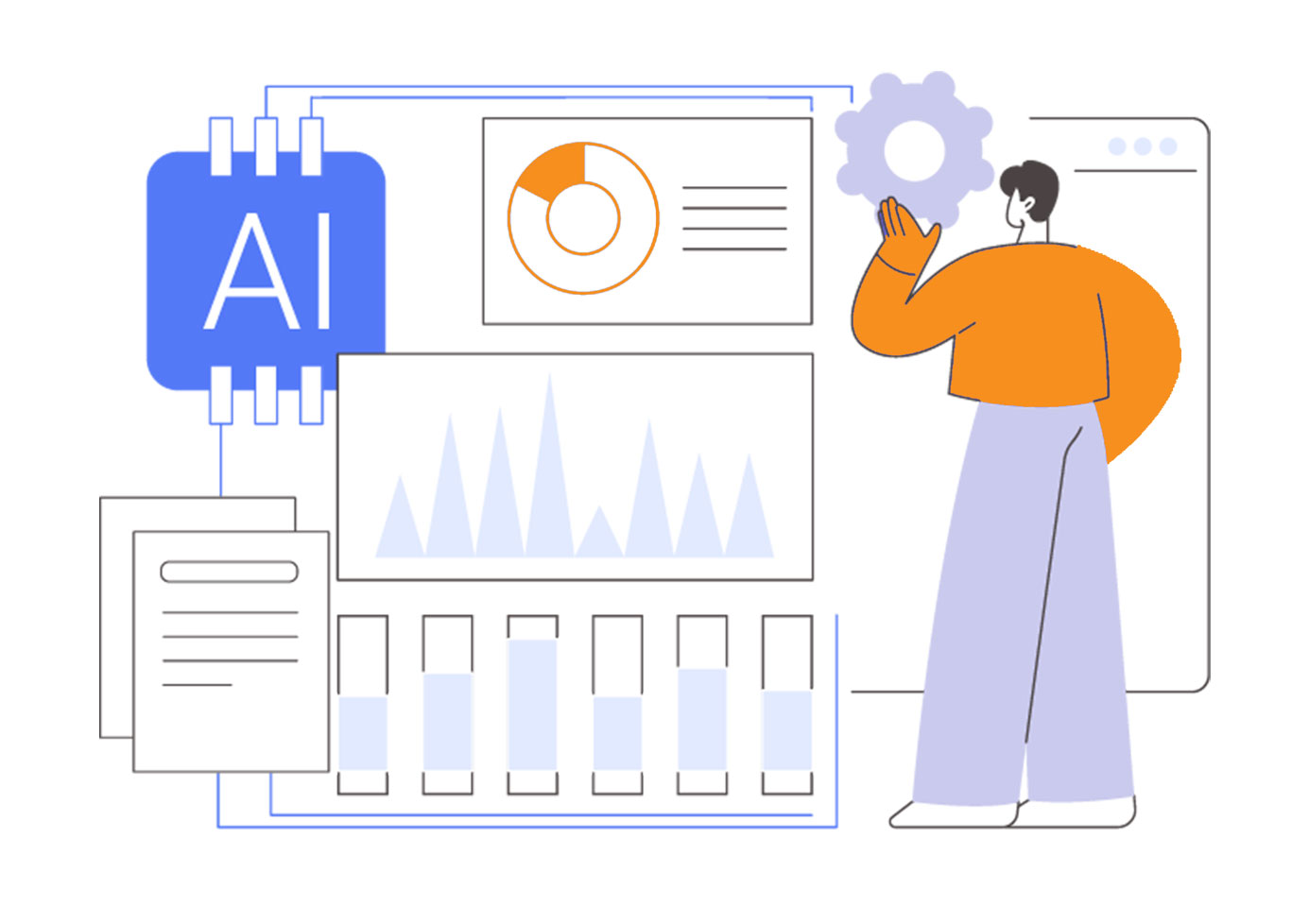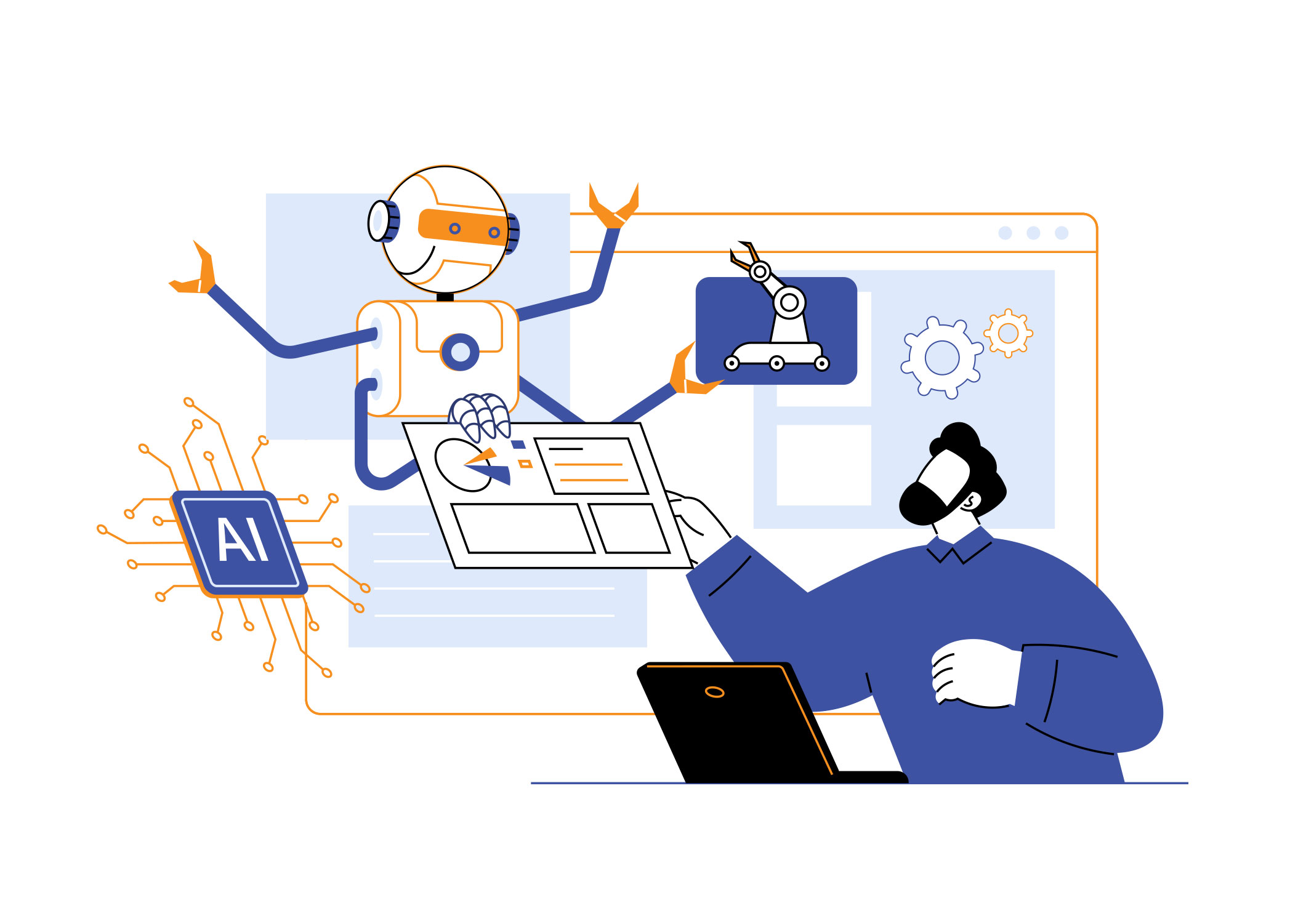As we stand on the precipice of the fourth industrial revolution, Artificial Intelligence (AI) integration in educational technology (EdTech) is becoming more pronounced. With a plethora of applications, AI’s role in EdTech has expanded, offering transformative avenues for teaching and learning. According to Accenture, AI is expected to improve profits for the EdTech industry by 84% by 2035. The merger of AI and EdTech is not just another tech trend. It’s a metamorphosis, recalibrating the ways educators teach and students learn, ensuring bespoke learning experiences and a richer educational environment.
At its core, AI integration within EdTech is the incorporation of machine learning algorithms and cognitive processes to simulate human intelligence in educational platforms. This symbiosis facilitates a heightened educational experience, adapting to each student’s unique learning curve. What began as experimental inclusions, AI components are now the backbone of many EdTech platforms. From basic automation to intricate problem-solving, AI fortifies these platforms, making them more responsive and intuitive.
The confluence of AI and EdTech has given birth to responsive learning pathways. These are dynamic routes tailored for learners, adjusting in real-time based on the learner’s progress, strengths, and areas of improvement.
Thanks to AI, responsive learning has seen remarkable advancements, enabling educators to deliver precise, individualized content that resonates with each learner’s unique needs. Adaptive learning pathways, developed using NLP and deep-learning techniques, improve learning recall significantly and allow teachers to explore new strategies.
With AI algorithms, educators now have virtual assistants that suggest ways to map out resources, and even predicts the learning trajectories of students, making education more insightful and impactful.
AI enables EdTech platforms to sieve through vast educational resources, guiding learners and educators in selecting the most appropriate methodologies and resources, tailored to individual needs. One of the key benefits is that in the absence of teacher support, AI-enhanced chatbots can resolve learner queries with 91% accuracy.
AI has revolutionized educational evaluations. Virtual tutors can provide automated assessments, instant feedback, and detailed performance analytics which are just the tip of the iceberg in this AI-driven educational renaissance. Through AI algorithms, feedback is no longer generic. It’s precise, constructive, and offers actionable insights, ensuring students know exactly where to focus their efforts. In fact, AI-assisted evaluation is able to reduce the grading time spent by teachers by a whopping 70%.
Harnessing the vast data landscapes, AI provides educators with deep insights, facilitating informed decision-making that directly translates to enriched learning experiences.
The predictive prowess of AI aids educational stakeholders in anticipating future trends, ensuring preparedness and fostering innovation in the educational realm.
AI has emerged as a potent force in democratizing education, ensuring every learner, irrespective of background, has access to quality education.
EdTech platforms, driven by AI algorithms, are championing inclusive learning initiatives, ensuring personalized, accessible, and equitable education for all.
Emergent AI technologies, like quantum computing and neuromorphic engineering, are poised to reshape the EdTech landscape, promising even more personalized and effective learning experiences.
As we gaze into the future, it’s evident that AI will play an even more central role, guiding educational strategies, methodologies, and tools, shaping a brighter educational future.

OpenAI Introduces GPT-4o OpenAI has introduced GPT-4o, the latest iteration in its series of generative pretrained transformers. GPT-4o, where ‘o’…

Artificial Intelligence (AI) is transforming industries across the globe. Businesses are increasingly recognizing the potential of AI to streamline operations,…

Introduction to AI Agents and Agentic Workflows Artificial intelligence (AI) agents are software entities that can perform tasks on behalf…